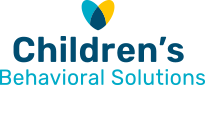The Acadia Healthcare network of treatment facilities offers a full continuum of care for senior adults and individuals of other ages whose lives have been disrupted by memory disorders. Acadia facilities provide comprehensive, personalized care to help individuals experience improved quality of life.
Understanding Memory Disorders
Memory disorders can undermine a person’s ability to think clearly, communicate effectively, retain information, make appropriate judgements, and otherwise function in a healthy and productive manner. Memory disorders can impact individuals of all ages, but they are most common among senior adults.
Some limited memory diminishments, such as occasional forgetfulness, minor lapses in recall, and similar challenges, are natural parts of the aging process. However, when a person experiences a dramatic decline in memory and associated cognitive functioning, a memory disorder may be present.
In clinical terms, memory disorders are classified as neurocognitive disorders. The fifth edition of the Diagnostic and Statistical Manual of Mental Disorders (DSM-5) includes both major and mild neurocognitive disorders that may impact memory.
The DSM-5 notes that major and mild neurocognitive disorders may be associated with a variety of challenges, including Alzheimer’s disease, Lewy body disease, vascular disease, traumatic brain injury, and the use of certain substances or medications.
Why Consider Treatment for a Memory Disorder
Most types of memory disorders are progressive conditions. This means that their symptoms may become increasingly severe over time. Depending on what type of memory disorder a person has, effective care can prevent the onset of certain symptoms, delay the development of other symptoms, or slow their progression.
In the absence of effective professional care for a memory disorder, a person may experience significant distress and diminished quality of life. Starting with minor forgetfulness or momentary confusion, the effects of untreated memory disorders can progress to the point that an individual is incapable of maintaining their independence.
Advanced symptoms of memory disorders include an inability to recognize family members or close friends, recall recent events, acquire new information, complete tasks, follow basic directions, practice self-care, and otherwise fully engage in a productive and satisfying lifestyle.
When an individual receives the right type and level of care for a memory disorder, they may be able to regain certain capabilities or retain cognitive skills for a longer period than they would have in the absence of proper care. Professional care within Acadia Healthcare’s network of treatment facilities can also help individuals and their loved ones to understand the challenges they are facing and make the adaptations that will enable them to achieve an increased quality of life.
Treatment facilities that provide care for older adults typically accept individuals age 65 and above, though this age requirement is not absolute. Some treatment facilities within the Acadia network will admit individuals in their 50s into programs that are designed for senior adults if that environment is most appropriate and beneficial for them.
Of course, although memory disorders most commonly impact senior adults, Acadia’s network of treatment facilities treats all populations. Our organization also provides services for younger individuals who have been impacted by major or mild neurocognitive disorders that involve memory impairment.
Levels of Care Offered Through Acadia Healthcare
Depending upon a variety of factors, including the nature and severity of a senior adult’s struggles, the individual’s age and treatment history, and the presence of co-occurring conditions, effective care for memory disorders may occur in a variety of settings.
Inpatient Treatment: Inpatient treatment for memory disorders is an intensive, short-term experience that features round-the-clock care and a broad scope of customized therapeutic interventions provided by teams of experienced professionals.
Residential Treatment: Residential treatment for memory disorders also features round-the-clock care. Patients may remain in a residential program for weeks or even months. Care typically includes a variety of personalized therapeutic services.
Partial Hospitalization Program (PHP): At the PHP level, individuals usually take part in full days of treatment five days per week. PHP participants return home or to supportive alternative residences in the evenings and on weekends.
Intensive Outpatient Program (IOP): At the IOP level, treatment often consists of two or three hours of care per day, two to four days per week. The frequency and substance of treatment at the IOP level varies from facility to facility.
Learn More
For more information about treatment for memory disorders or other mental or behavioral healthcare challenges, contact an Acadia treatment facility today. At each facility within the Acadia network, a friendly and knowledgeable representative will be happy to answer all of your questions so that you can make the best decisions for yourself or your loved one.








